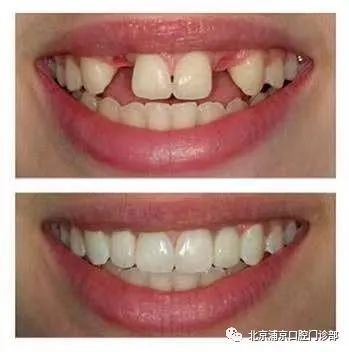HOW PAINFUL IS GETTING A DENTAL IMPLANT?
Source:Pujing Dental ClinicUpdated on:2022-03-05

Have you been considering getting a replacement for your missing tooth? Our teeth and gums comprise our smiles. These are crucial to how we feel about ourselves and are the main point of our confidence. When a tooth goes missing, we look for ways to fill the gap. One of the newest ways dental offices are offering to restore smiles is with dental implants.
Dental implants are not the same as bridges and dentures. While they fundamentally do the same things, fill a gap, an implant involves surgery and healing. It is essential to know what the procedure involves, as to understand what kind of or level of pain to expect.
WILL SURGERY HURT? WHAT TO EXPECT FROM THE PROCEDURE?

Breaking down dental implants should be done in two parts. The first part is the surgery itself, and the second is the recovery. Dental implants are surgically put in by your dentist. This requires them to cut into the gums. As you can imagine, this does sound painful. But before your dentist gets started, they will use a local anesthetic.
This is very similar to what you would get in a fillings procedure. After the area is completely numb, the dentist can make an incision to expose the jawbone. You will feel no discomfort, as the area is entirely anesthetized.
After making the area more accessible, a hole can be drilled for the implant. While drills might also sound painful, your jawbone has no nerves to feel any pain. The most discomfort you could feel is pressure. You won’t feel any of the drilling. The dental implant can then be screwed into place. The process of numbing the area, making the incision, drilling, and installing the implants will take about an hour. Once your dentist is satisfied with the placement, he or she will close up the incision. While the local anesthetic is still in effect, the patient will feel no pain at all. Your dentist may give you pain medication before starting the procedure so that when the anesthetic wears off, you have sufficient pain relief, just in case. That’s when the healing process begins.
WHAT TO EXPECT WHEN HEALING?

You can expect some tenderness after the anesthesia wears off. However, it isn’t unmanageable. Your dentist will likely recommend that you take an over the counter pain reliever for any discomfort felt during the healing process. It is essential that you follow any aftercare points distributed by your dentist. This can include the following:
-Avoid straws for 24-hours following surgery.
-Expect some minor swelling for 2 to 3 days.
-The day following rinse with salt water 3 to 4 times daily.
-Avoid overly hot food in the first 48 hours.
-Stick to a liquid diet for 24-48 hours.
-Avoid smoking for at least three days following surgery.
Recovery and healing will be different for everyone. The consensus is that you should not have much pain throughout either the procedure or recovery. If you are having pain, especially days later, you should seek medical attention, or schedule an appointment with your dentist for a follow-up. While surgery is not known to be pain-free, dental implants are one of the more accessible operations to have. Most patients equate the pain too significantly less than having a tooth pulled.
SHOULD YOU CONSIDER DENTAL IMPLANTS?

If you’ve been thinking about getting dental implants, the first step is talking to your dentist. Your dentist can provide in-depth information about the procedure, what to expect, and aftercare instructions. The office will also tell you of cost comparisons between different replacement solutions. Dental implants aren’t right for everyone. Some patients will require additional procedures. Bone grafts and sinus lifts are two standard procedures patients need for improving jaw bone quality.
Those that have worn dentures for years may find it necessary to have those additional procedures to improve the condition of the bone. Bone loss is a significant problem for denture wearers and a common cause for making a person not an ideal candidate for dental implants. During an initial consultation, your dentist will look at the quality of your remaining teeth, gums, and jawbone to determine if dental implants are right for you. However, even if you aren’t a good candidate right now, you aren’t entirely excluded from getting dental implants. Your dentist may develop a treatment plan to include the above procedures, bone grafts, and sinus lifts, to prepare the area for an implant.
CONCLUSION:

Having any type of surgery can be scary. You might be overly worried about the drilling, cutting, or having to have sutures. The bottom line is that you shouldn’t have any pain when getting dental implants. Nor should you much discomfort throughout recovery. During the procedure, you will be wholly numbed; For the days following Tylenol® or other over the counter, products can be enough to settle any pain in the area due to sutures.
article
Hotrecommend
- 2021-10-14
- 2021-11-25
- 2021-12-11
- 2022-03-28







